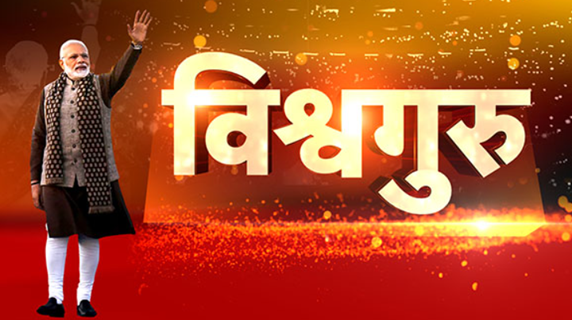Global Pluralism: India’s Path to ‘Vishwaguru’
Relevance
- GS Paper 1 Salient features of Indian Society, Diversity of India.
- Tags: #GlobalChampionOfPluralism #IndiaForInclusivity #InclusiveWorldOrder #ToleranceAndDiversity #VishwaguruIndia #UPSC #MintEditorial #CurentAffairs
Why in the News?
In an increasingly interconnected world, the concept of national self-determination as an organizing principle for international politics is facing challenges. India, with its rich history of pluralism, can offer an alternative path forward.
India as a Vishwaguru: Leading by Example
India, like a wise guru, may not be flawless and has visible shortcomings.
- It doesn’t need to achieve ultimate moral, political, or economic superpower status to guide the world.
- It can still lead by example in governance, showing the way to a better future.
- Imperfections don’t negate its potential to be a global role model, teaching the world valuable lessons in improving governance and international relations.
Pluralism: India’s Guiding Principle
India’s formula for a better world is pluralism. It aligns with our philosophical heritage, societal norms, and constitutional framework.
- Jain Philosophy of ‘Anekantavada’ :The Jain philosophy of ‘anekantavada’ accepts diverse viewpoints, rejecting monopolies on correctness.
- Bhagavad Gita’s Multiple Paths: The Bhagavad Gita acknowledges numerous paths, respecting their diversity while highlighting some as superior.
- Historical Examples: Historical figures like Akbar and British colonists recognized pluralism, respecting various traditions and beliefs, promoting harmony amid differences.
- India’s political pluralism, driven by its vast diversity, thrived because it was backed by philosophical traditions that either openly embraced or reluctantly accepted it.
Indian Republic’s Success Story
- India stands out among post-colonial states of the 20th century for remaining united, democratic, and prosperous.
- After World War I, many countries gained independence based on their right to national self-determination.
- This ‘right’ isn’t natural, as different groups often lived under empires throughout history.
- Defining what qualifies as a nation is challenging, as there’s no single, universally accepted definition.
Wilsonian Moment
- The US’s rise in the 1910s and opposition to European colonialism sparked the Wilsonian moment.
- Anti-colonial movements coincided with the decline of European empires, leading to the recognition of the right to national self-determination.
Challenges of National Self-Determination
- India’s freedom movement benefited from these moral shifts.
- However, the Partition also demonstrated that national self-determination can have unintended consequences.
- Highlighting the complexity of defining a nation and the challenges in achieving self-determination without internal divisions.
Reevaluating National Self-Determination
- National self-determination, once a prominent principle for organizing international politics, has lost its relevance.
- It often leads to Ethnic majoritarianism, with consequences like secessionism and the creation of new nation-states.
- Ethnic majoritarianism can result in Secessionist Movements, these movements often involve cleansing minorities and imposing domination.
- Examples include Bangladesh from Pakistan, Eritrea from Ethiopia, Timor-Leste from Indonesia, Kosovo from Serbia, and South Sudan from Sudan.
- Around the world, many groups seek to break free from dominance.
- When they establish their own nation-states, they may replicate the cycle of suppressing minorities.
- This pattern is not an exception but a logical outcome in a world that emphasizes national self-determination without enforceable obligations to protect human liberty.
A World Modeled on India’s Approach
- Accepting Diversity: In an ideal world, states resemble India by recognizing the legitimacy of religious, racial, ethnic, linguistic, and cultural communities, while safeguarding individual fundamental rights.
- No Community Supremacy: No community enjoys constitutional or moral superiority. Believing in one’s superiority is a personal belief without legal basis.
- Promoting Pluralism and Tolerance: Society embraces pluralism, and civic values foster tolerance. The state remains neutral, although democratic politics may occasionally emphasize communal or sectarian causes.
Realism vs. Idealism
- In India, we acknowledge the gap between our ideal vision and daily reality.
- However, even with its flaws, the Indian system outperforms many alternatives.
Global Perspective
- In regions like the Balkans, Middle East, Central America, Caucasus, and parts of Africa, majoritarian politics have led to suboptimal states and unsustainable economies.
- Embracing inclusive, tolerant, and pluralist federations could significantly improve lives for billions worldwide, replacing small rival states with more effective governance.
India should reaffirm confidence in its state and promote pluralism domestically. It’s the key to resolving issues like Kashmir, Manipur, delimitation, caste politics, and communal harmony. Success at home will enhance India’s global leadership. A world modeled after the Indian Union would be superior, benefiting everyone. Such a world aligns with India’s interests, promoting unity and harmony, and enhancing its global standing as a Vishwaguru or global leader.
|
Anekantavada · Anekantavada is a foundational concept in Jain philosophy, emphasizing the multiplicity of viewpoints and the complex nature of reality. · It asserts that truth is multifaceted and cannot be fully grasped from a single perspective. Key Concepts Multiplicity of Perspectives
Syadvada
|
Source: LiveMint
Mains Question
How can India further strengthen its position as a global champion of pluralism, both domestically and internationally? Discuss the importance of promoting pluralism in addressing various internal challenges and enhancing India’s global influence?




